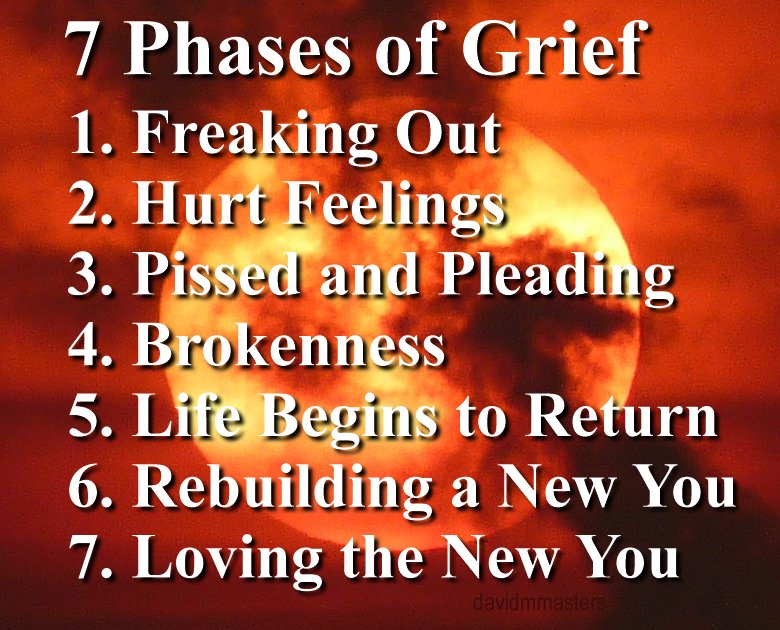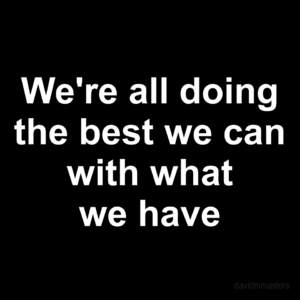It can be confusing and make you wonder, why do people say one thing and do another? You’re a reasonable person and you go through great lengths to keep your word with other people, and you would think that other people would offer you the same courtesy.
Before we delve into the psychology of it all, let’s remember that we’re all basically good people with good intentions. The problem with good intentions is that the road to hell is paved with them (so they say).
Generally, when someone tells you they’re going to do something, their intent is to actually do it, because they want to please you, to support you, and to feel they are a part of your team. Often, they are so eager to please that they agree to things they may not have thought through fully.
Life is hectic and our desire to “be there” for the people we care about often overrides the realization that things come up in life that may make it difficult to follow through with the commitments we make to our friends. Because of this, we often overextend our ability to do the things we commit to.
So, try not to take it personally when someone says one thing then doesn’t follow through. Keep in mind that their intent was to be there for you because they do care about you.
If you’re the kind of person that does whatever it takes to keep your word and maintain a high level of integrity with those who you make promises to, you know how hard it can be sometimes with the commitments you make to others. While you are to be commended for having such high standards, your expectations of even yourself may be so high that you’re impeding your own quality of life.
Maybe it’s time that you started to lighten up a bit on your own expectations of yourself. When you’re feeling overwhelmed or even panicked about fulfilling your obligations, maybe its time for you to cut yourself a little slack. Sometimes we can get so obsessed about keeping our word that it can lead to destroying your quality of life.
It’s okay to have things come up, and if you’re feeling overwhelmed, this is that greater part of you saying this might be too much for you to bear. So, cut yourself some slack, and be polite about it. Call or text the person you’ve over-committed yourself to and let them know that you might not be able to perform in the manner that you thought you could have when you told them you would do the thing you said you would do.
Once you’ve done that, you can instantly feel the sense of relief that comes from honoring yourself while still letting your friend know that your intention was to keep your word.
It is not the end of the world, just because you failed to follow through on what you said you would do on someone else’s behalf. Forgive yourself and keep moving forward, enjoying honoring yourself.
Keep that in mind the next time someone tells you that they will do something for you, and they fail to follow through. Tell yourself, “I know that things come up,” knowing that you do that, too. Forgive and bless them, because you know that you’re being flexible will be a great source of relief for the person who made you a promise that was just too stressful for them to keep.
Life is not just black and white. There are so many shades of gray in our experience and being flexible actually opens the door for new opportunities that you may have missed along the way when you’re more adaptive to change and allowing the flow of life to progress naturally.
This can be particularly difficult for you if you’ve been trained in a manner to think that life is just black-and-white. For instance, for people who have spent years in the military or a paramilitary organization, they have been trained to see things as this or that without any shades of gray.
This is an effective way to manage large groups of individuals with little or no leeway for life to flow when resources are limited, and chief objectives must be maintained with high levels of performance, but this is unnatural.
Life is flowing, not militaristic.
Of course, there are also toxic people who make it a habit to tell you they will do one thing but do another just to wreak havoc with your life. This is another thing entirely.
These are the people you need to keep at a safer distance, moving them further from your circle of friends. If they are showing you that they are unwilling or unable to do the things they say they will, then it’s on you to stop expecting them to do anything they say. Problem solved.
Release your attachment to expectation, and learn to lighten up on yourself and others.
You got this.
Keep moving and going with the flow.




